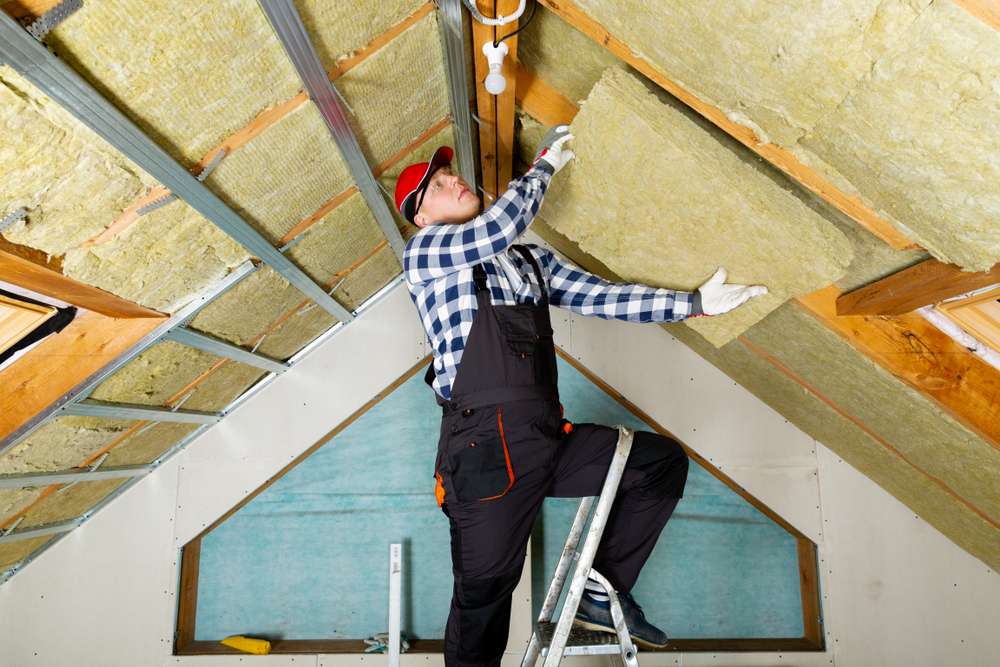Superior Spray Foam Insulation for Maximum Comfort
Looking for better comfort and energy efficiency in your home? Discover how spray foam insulation can help regulate indoor temperatures year-round, reduce noise, and cut down on energy use. With long-lasting performance and eco-conscious benefits, it’s a smart choice for modern homeowners seeking consistent indoor comfort and lower utility bills.

What is spray foam insulation and how does it work?
Spray foam insulation is a modern insulation technique that involves applying a liquid foam material to walls, ceilings, and other surfaces within a building’s structure. This foam quickly expands and hardens, creating a seamless and airtight barrier. The two main types of spray foam insulation are open-cell and closed-cell foam, each with its own set of characteristics and applications.
The unique properties of spray foam allow it to fill even the tiniest cracks and crevices, effectively sealing air leaks and preventing heat transfer. This comprehensive coverage is what sets spray foam apart from traditional insulation materials like fiberglass or cellulose, which can leave gaps and settle over time.
How does spray foam insulation improve energy efficiency in homes?
One of the primary benefits of spray foam insulation is its exceptional ability to improve a home’s energy efficiency. By creating an airtight seal, spray foam significantly reduces air leakage, which is a major source of energy loss in buildings. This air sealing property helps maintain consistent indoor temperatures, reducing the workload on heating and cooling systems.
The high R-value (thermal resistance) of spray foam insulation, particularly closed-cell foam, provides excellent insulation properties. This means less heat escapes during winter and less cool air is lost during summer, leading to reduced energy consumption year-round. As a result, homeowners can expect to see a noticeable decrease in their energy bills after installing spray foam insulation.
What are the key benefits of spray foam insulation for improving indoor comfort?
Spray foam insulation offers several advantages that contribute to enhanced indoor comfort:
-
Temperature regulation: By minimizing air leakage and heat transfer, spray foam helps maintain consistent temperatures throughout the home, eliminating cold spots and drafts.
-
Moisture control: Closed-cell spray foam acts as a moisture barrier, helping to prevent water infiltration and reducing the risk of mold and mildew growth.
-
Noise reduction: The dense structure of spray foam provides excellent sound dampening properties, reducing external noise and creating a quieter living environment.
-
Improved air quality: By sealing air leaks, spray foam helps reduce the infiltration of outdoor pollutants, allergens, and dust, contributing to better indoor air quality.
How does spray foam insulation compare to traditional insulation methods?
Compared to traditional insulation materials like fiberglass batts or blown-in cellulose, spray foam insulation offers several distinct advantages:
-
Superior air sealing: Spray foam’s ability to expand and fill gaps provides a more comprehensive air barrier than traditional materials.
-
Higher R-value per inch: Especially for closed-cell foam, the insulation value is higher than traditional materials, allowing for better performance in thinner applications.
-
Longevity: Spray foam insulation does not settle or compress over time, maintaining its effectiveness for many years.
-
Structural support: Closed-cell spray foam can add structural integrity to walls and roofs, potentially increasing a building’s strength.
-
Versatility: Spray foam can be applied in hard-to-reach areas and irregular spaces, providing consistent coverage where traditional materials may fall short.
What eco-friendly benefits does spray foam insulation offer?
For environmentally conscious homeowners, spray foam insulation offers several eco-friendly advantages:
-
Energy conservation: By significantly reducing a home’s energy consumption, spray foam helps lower overall carbon emissions associated with heating and cooling.
-
Longevity and waste reduction: The durability of spray foam means it needs to be replaced less frequently than traditional insulation, reducing waste over time.
-
Air quality improvement: By creating a tighter building envelope, spray foam can help reduce the infiltration of outdoor pollutants, contributing to better indoor air quality.
-
Use of renewable materials: Some spray foam products incorporate renewable or recycled materials in their composition, further reducing their environmental impact.
-
Potential for LEED certification: The energy efficiency improvements provided by spray foam can contribute to LEED (Leadership in Energy and Environmental Design) certification for buildings.
What are the cost considerations and long-term savings of spray foam insulation?
While the initial cost of spray foam insulation is typically higher than traditional insulation methods, it’s important to consider the long-term savings and benefits:
-
Energy savings: The superior insulation properties of spray foam can lead to significant reductions in energy bills over time.
-
Increased home value: Improved energy efficiency and comfort can increase a home’s resale value.
-
Reduced maintenance costs: The durability and moisture-resistant properties of spray foam can help prevent issues like mold growth or structural damage, potentially saving on future repair costs.
-
HVAC equipment savings: With improved insulation, homeowners may be able to install smaller, more efficient HVAC systems, saving on equipment costs.
| Provider | Type of Foam | Estimated Cost (per square foot) |
|---|---|---|
| Icynene | Open-cell | $0.90 - $1.50 |
| Demilec | Closed-cell | $1.50 - $2.50 |
| BASF | Open-cell | $0.85 - $1.40 |
| CertainTeed | Closed-cell | $1.60 - $2.70 |
| Foam-Lok | Open-cell | $0.95 - $1.55 |
Prices, rates, or cost estimates mentioned in this article are based on the latest available information but may change over time. Independent research is advised before making financial decisions.
In conclusion, spray foam insulation offers a superior solution for homeowners seeking to maximize comfort, energy efficiency, and overall home performance. While the initial investment may be higher than traditional insulation methods, the long-term benefits in energy savings, improved indoor comfort, and potential increases in home value make it a compelling choice for many Canadian homeowners. As with any significant home improvement, it’s essential to consult with qualified professionals to determine the best insulation strategy for your specific needs and budget.




